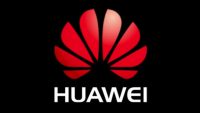Intelligence Agencies Agree to Rein In Huawei Technologies
December 18, 2018
In July, said sources, heads of intelligence agencies from Australia, Canada, New Zealand, the U.K. and U.S. met in Canada and agreed that they needed to “contain” China’s telecom manufacturer Huawei Technologies. The advent of 5G mobile networks has heightened the already-existing risk of using Huawei gear. The group discussed Chinese cyberespionage and expanding military, and ways to protect telecom networks. Despite the lack of a consensus, the group did agree that an outright Huawei ban is impractical.
The Wall Street Journal reports that, according to a source, “the five countries are not all exactly alike in their views and willingness to speak out, but they all see the same threat.” But, after the meeting in Canada, “some of the typically reticent intelligence officials who were there made unusual public comments about what they saw as a growing threat posed by Huawei.” For example, Australian Signals Directorate director-general Mike Burgess warned that, “entire transport and utility grids could be crippled if 5G … were compromised.”

British Secret Intelligence Service head Alex Younger added that, “the government needed to decide how comfortable it was with allowing Huawei to supply a 5G mobile network in the U.K.,” followed a day later by Canadian Security Intelligence Service head David Vigneault stating that his agency “had observed increased state-sponsored espionage in fields such as 5G.”
The U.S. has publicly identified its greatest worry that, “Beijing could compel Huawei to use its knowledge of its equipment to spy on or sabotage foreign telecommunications networks.”
German authorities have thus far resisted U.S. warnings about Huawei, saying they need “more specific evidence to demonstrate the security threat.” More recently, Deutsche Telekom said it was reviewing its policies around acquiring vendor equipment given “the global discussion about the security of network elements from Chinese manufacturers.”
Reuters reports that, according to sources, “T-Mobile US and Sprint believe their foreign owners’ offer to stop using Huawei Technologies equipment will help with the United States clearing their $26 billion merger deal.” Sprint and T-Mobile do not use Huawei equipment, “but their majority owners, Germany’s Deutsche Telekom and Japan’s SoftBank use some Huawei gear in overseas markets.”
Both of these latter companies “were reported this week to be seeking to replace the world’s biggest network equipment maker as vendor.” SoftBank said it will replace Huawei equipment with that from Nokia and Ericsson. Germany is still reviewing its plans.
The Committee on Foreign Investment in the United States (CFIUS) may approve the T-Mobile/Sprint deal next week, although “negotiations between the two companies and the U.S. government have not been finalized yet, and any deal could still fall through.”
Related:
T-Mobile Takeover of Sprint Clears U.S. National Security Panel, The Wall Street Journal, 12/17/18

No Comments Yet
You can be the first to comment!
Sorry, comments for this entry are closed at this time.